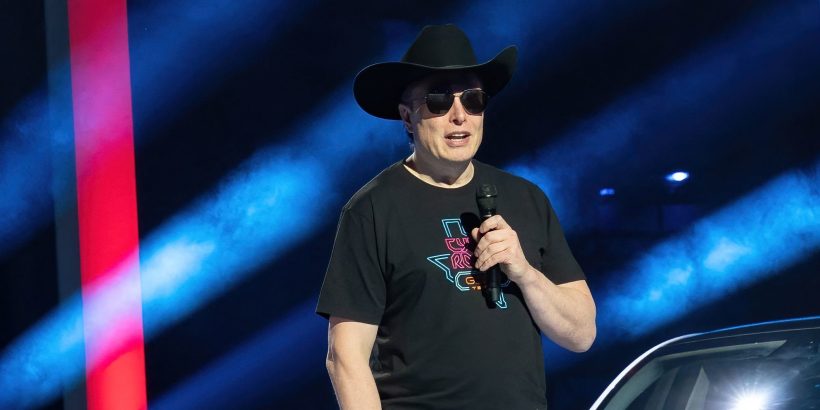April 15, 2022 Tom Ozimek
Twitter is reportedly considering a so-called “poison pill” tactic to thwart Elon Musk’s effort to buy out the social media platform, prompting a critical response from the Tesla chief.
Cameron Winklevoss, founder of the Gemini cryptocurrency exchange, said in a tweet that “Twitter is considering a poison pill to thwart @elonmusk’s offer,” while two anonymous sources told The New York Times that Twitter’s board is mulling the tactic, which is used to block hostile takeovers.
The poison pill method gives existing shareholders the right to buy additional shares at a discount, diluting outstanding stock and making a hostile takeover more financially challenging for the acquirer.
Responding to Winklevoss’ tweet, Musk said a “poison pill” move could expose Twitter’s board to “titanic” legal liability.
‘Orwellian Control of The Narratives’
Winklevoss alleged in his tweet that, by adopting the poison pill tactic, Twitter was demonstrating its commitment to preserving the status quo even if it has a negative impact on existing shareholders.
“They would rather self-immolate than give up their censorship programs. This shows you how deeply committed they are to Orwellian control of the narratives and global discourse. Scary,” he wrote.
Twitter has been accused of suppressing some minority and politically conservative viewpoints, allegations the company has repeatedly denied.
Musk responded to Winklevoss’s tweet, saying that if Twitter’s actions run afoul of shareholders’ interests, they could be exposing themselves to legal action.
“If the current Twitter board takes actions contrary to shareholder interests, they would be breaching their fiduciary duty,” Musk wrote. “The liability they would thereby assume would be titanic in scale.”
‘My Best and Final Offer’
Musk, who has a 9.2 percent stake in Twitter, made headlines on Thursday by launching a bid to buy all of Twitter’s outstanding shares in cash at a significant premium over market price.
He said he was offering to buy “100 percent of Twitter for $54.20 per share in cash, a 54 [percent] premium over the day before I began investing in Twitter and a 38 [percent] premium over the day before my investment was publicly announced.”
“My offer is my best and final offer and if it is not accepted, I would need to reconsider my position as a shareholder,” he added.
Adam Candeub, a law professor at Michigan State University, told The Epoch Times that Twitter’s board could face legal consequences if they turn down an offer that’s financially lucrative to shareholders.
“Twitter’s owned by shareholders, and the directors have to act in a way that’s in their best interests, not in the way that allows them to keep control of the corporation,” Candeub told The Epoch Times.
“If they turn down a very favorable price, there will be dereliction of their legal duty, and there could be lots of legal consequences.”
‘Extraordinary Potential’
Musk’s bid hit a roadblock when Saudi investors rejected his offer. Saudi Arabian Prince Al Waleed bin Talal Al Saud, who in 2015 bought a 5.2 percent stake in Twitter, responded that the offer was unacceptable.
“I don’t believe that the proposed offer by @elonmusk ($54.20) comes close to the intrinsic value of @Twitter given its growth prospects,” said Al Waleed in a tweet. “Being one of the largest & long-term shareholders of Twitter @Kingdom_KHC & I reject this offer.”
Musk responded by suggesting the rejection was politically motivated.
“Interesting. Just two questions, if I may,” Musk wrote in response. “How much of Twitter does the Kingdom own, directly & indirectly? What are the Kingdom’s views on journalistic freedom of speech?”
Musk, who has repeatedly questioned Twitter’s commitment to free speech, said in his buyout proposal that he wants to transform the company into a true platform for free speech.
“Twitter has extraordinary potential. I will unlock it,” Musk wrote in a letter to Twitter Chairman Bret Taylor, attached as an exhibit to a filing with the Securities and Exchange Commission (SEC) on April 14 (pdf).
After Musk’s earlier purchase of a stake that made him Twitter’s biggest individual shareholder, he was offered a seat on the company’s board of directors, which he initially appeared to accept but later turned down.
Declining the board seat fueled speculation about whether Musk had plans to launch a hostile takeover of Twitter.
“I invested in Twitter as I believe in its potential to be the platform for free speech around the globe, and I believe free speech is a societal imperative for a functioning democracy,” Musk wrote in the letter to Taylor.
“Since making my investment I now realize the company will neither thrive nor serve this societal imperative in its current form. Twitter needs to be transformed as a private company,” Musk continued, referring to the “societal imperative” of free speech.

